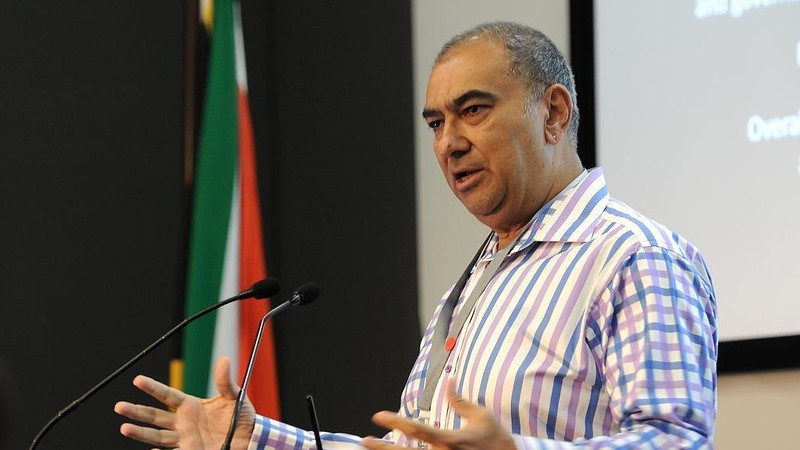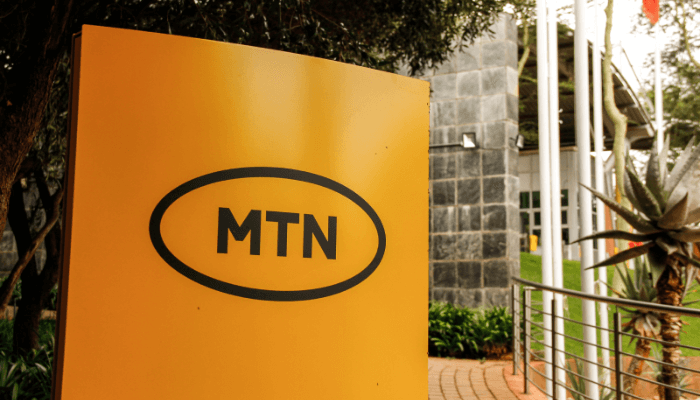A conversation with Ketso Gordhan, CEO of the SA SME Fund, about the R1 billion VC Fund of Funds (VC FoF) which recently had its first close of R600 million.
This week, the SA SME Fund officially announced that it had secured the first close of its R1 billion (~$51 million) Venture Capital Fund of Funds (VC FoF) at R600 million (~$30 million) against an initial target of R500 million (~$25 million).
Through the raised capital, the SA SME Fund intends to deploy the capital in venture capital firms that are backing innovative startups building solutions which address South Africa’s most pressing problems.
TechCabal had a sit down with Ketso Gordhan, CEO of the SA SME Fund, to learn more about the rationale behind raising the fund, the impact of such a fund in the country’s venture capital industry and innovation in general, as well as the next steps in deploying the raised capital.
TechCabal: Please tell us a bit more about the SA SME Fund and the recent closing of the R600 million fund.
Ketso Gordhan: The SA SME Fund was established about five years ago as an initiative of a group of CEOs from the private sector. Initially, 50 companies contributed R900 million, the Public Investment Corporation (PIC) using the Unemployment Insurance Fund (UIF), and Compensation Fund (CF) money, contributed R500 million, meaning we had a fund of R1.4 billion.
With that fund, we did private equity, venture capital, and debt investments in SMEs via intermediaries. Based on that experience, we realised that the two things we wanted to continue doing were debt and venture capital. So last year, we raised a relatively small R300 million debt Fund, with the Gauteng government providing us with R100 million of first-loss capital, the Industrial Development Corporation added R100 million and we added R100 million, and we added R100 million. The fund mainly went to township businesses in the Gauteng district as debt to SMEs.
Over the last two years, we have been trying to raise another fund focused exclusively on venture capital. We were finally able to achieve our first close of it a few weeks ago, at R600 million. We hope that by the end of the year, we would have closed the entire R1 billion we set out to raise, if not more.
The reason we decided to raise this fund is that we realised the value and power of venture capital in driving innovation, economic growth, and finding solutions to some of our country’s pressing problems. Also, we realised that there is a shortage of capital in VC and wanted to help plug that gap. With this new fund and the last one I mentioned, we are now the largest institutional investor in the VC sector.
TC: What role do you think the fund will play in making capital available especially looking at the fact that we are currently in a VC downturn?
KG: All money we will be able to raise through this fund will be allocated to at least 10 or 11 VC funds. We believe that’s going to significantly, and in a positive way, impact the VC landscape in South Africa because these funds having more assets under management through our contributions means they can put this into innovative startups. As an industry, venture capital in South Africa has been doubling in size over the last three to four years and I think we are going to repeat that trend one or two more times.
A lot more institutional capital is likely to come into VC and we are also very proud that we were the first to convince a pension fund to allocate capital to a VC fund. The Consolidated Retirement Fund contributed R250 million of the R600 million that we announced and we are very proud of that because it is a needed development in the growth of VC in South Africa.
We are expecting at least one more fund, if not more, to partake in the next raise of fundraising. It will take another year or two or three for this trend to mature but eventually, we will see larger amounts of capital flowing from institutions into VC and we are proud to have contributed to kick starting this trend.
TC: How important are public and private sector partnerships in growing the VC industry in South Africa?
In most countries where venture capital has taken off, the government has played a leading role in providing either first-loss capital or cheaper capital, and also incentivising other investors into VC. In South Africa, unfortunately, we haven’t really seen the government play that role. But the SA SSME fund has effectively filled that gap. Last time around, we allocated money to nine venture capital funds, five of them were first time fund managers, so five of them had never run a venture capital fund before.
This time, unfortunately, we will still do some first time fund managers, but a lot fewer, probably about two or three, because this time, we have pension fund money, and we need to be a lot more cautious with how we invest pension fund money. But still, we would have contributed to aid first time fund managers coming into the VC space over the last three to four years. So I think those are the most important types of partnerships where government, corporate and fund or fund managers like ourselves, give an opportunity to first time fund managers to come into the VC industry.
TC: In terms of the deployment of capital, where will the funding be allocated?
KG: We don’t do any sector-specific VC funds. Most of the funds we allocate money to are generalist funds, but I can say that we will definitely be doing biotech. This is because it’s an important area of research in South Africa. We currently have put money into one such fund, which is South Africa’s only biotech fund, and we plan to continue to invest in that space.
We will continue to invest in hardware and we have already allocated capital to Savant which invests in African hardware and deep technology companies that are underpinned by science and engineering innovations. And then last time, we did something which we consider truly innovative. We created the first ever University Technology Fund in Africa, where we help the universities like UCT (University of Cape Town), University of Western Cape, Wits University, and Stellenbosch University to commercialise their IP.
We’re going to be covering pretty much all the areas in which technology is beginning to be utilised and there are startups that have solutions to important problems, because the ultimate aim of VC is to help build businesses which will solve problems and consequently, improve people’s lives.
TC: Now that the first close has been achieved, what’s the next step?
KG: We are definitely not sitting still. With the R600 million, we’ve already been to our Investment Committee, have approval in principle to allocate money to five venture capital funds, and within the next two or three months, these VCs will have access to money to start doing deals. I can’t give you the names because we still don’t have the final approval and haven’t signed agreements with them but yes, we will have five venture capital funds using our money within the next few months.
Our second focus is to raise more money and we are in conversations with other pension funds and institutions. I am optimistic that we will close the fund by the end of the year at either R1 billion or slightly above R1 billion. We will then have more capital in the second half of the year to start allocating to maybe another three or four VC funds, which we hope to do by the end of the year. So by the end of this year, quite a bit of that money will be hitting the ground and doing deals.
TC: Relative to tech hubs on the continent, VC in South Africa has been struggling to keep up over the last few years. With these recent developments, where would you say the country’s VC industry is headed?
KG: Like I said earlier, I think VC is going to double in size in terms of rands invested in South Africa, every year for the next two or three years. I expect that next year will be a year where we probably invest over R2 billion into deals. That would be the first time we exceed the R2 billion mark in a single year and I expect that to happen next year, which means the following year, we should be at about two and a half to R3 billion going into VC deals. So I think we are growing incredibly fast. It might not continue forever, but at least for the next two to three years, I see us doubling the size of investments each year.
Another development I think will go a long way in fostering innovation in South Africa is commercialising the IP that comes out of universities and science schools. The VC industry will go a long way in facilitating this and I’m happy that through our little contribution as the SA SME Fund, we are effectively creating an implosion of converting what is IP sitting on a shelf into real businesses.
*Interview has been edited for clarity and length.





















